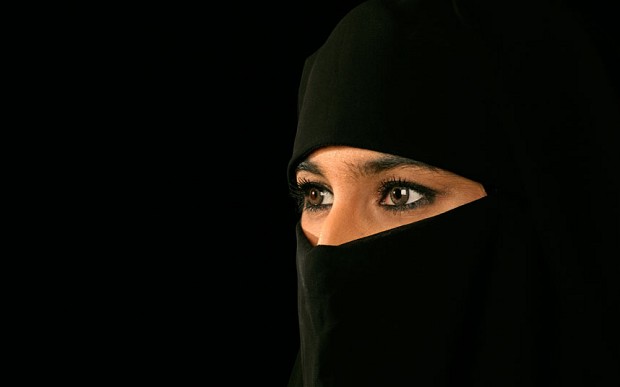
Interior Minister Jorge Fernández Díaz has suggested that the use of burkhas should be regulated by the draft Citizen Safety Law now making its way through parliament.
Although he will leave the final decision to political groups in Congress, the minister said on Wednesday that he was personally convinced that the full-body covering is denigrating to the women who wear it.
“I think it has to do with the dignity of women, and it seems to be that this garment is an attack against that dignity, but this matter is not the exclusive domain of the Interior Ministry,” said Fernández Díaz.
The minister went on to add another dimension to the issue, “to the extent that it [the burqa] makes it difficult to identify a person committing an unlawful act.” The citizen safety bill already “contemplates sanctions for individuals who participate in demonstrations with a face covering to avoid being identified,” he added.
In July, the government approved a less strict version of the original bill, which drew widespread criticism from the opposition, from social groups and even legal bodies. The text had been described as a “gag law” because it was viewed as an attempt by the Popular Party (PP) administration to curtail street protests against the economic crisis and political management.
The Catalan government earlier this week announced that its own public safety legislation is now beginning to make its way through the regional parliament. This law will regulate the use of the full-body covering on the streets but will not “harm religious freedom.” No sanctions are established.
Since 2010, 17 Catalan municipalities have passed bans on the burqa and the niqab, but only seven have developed specific legislation and nobody has ever been given a sanction.
However, the chair of the Muslim Women's Association in the country, Hasar Famadi. say s burkha bans in Spain are 'totally unnecessary'.
“This ban, I believe, would affect roughly three or four women in Spain,” states Sra Famadi. “I practically never see women with their faces covered – behind this prohibition is pure Islamophobia. “It's about creating social alarm, and making out Spain is invaded with women wearing the burkha, and that's not the case at all. “There's no real conflict which justifies so much media attention.”
Hasar Famadi admits she does not like burkhas anyway, and never wears one. “I don't think it's necessary to wear a burkha, and Islam does not specify that women should,” she stresses. “Women wearing the burkha is purely a matter of how certain cultures choose to interpret Islam, but there's nothing in the Q'ran about it at all.
“Burkhas are outfits which mainly come from the Persian Gulf – and the majority of us Muslim women in Spain are from north African countries like Morocco or Algeria. “These outfits do not exist in our culture, in north Africa – we wear the more common types of headgear, such as the hiyab.”
A hiyab is a headscarf which covers the hair and part of the neck, but leaves the wearer's face exposed, whilst the niqab – which is rarely seen on north African Muslims, or indeed those from Bangladesh or Pakistan, from where first-generation Muslims in the UK predominantly originate – covers the head and lower part of the face. “They are talking about what should not be talked about and legislating what should not be legislated,” storms Famadi.
Two years ago, a teenage girl was expelled from a school in Madrid because she chose to wear a hiyab, or headscarf, which left her face uncovered – a decision which was made by the youngster herself, insisted her Moroccan parents, who said they had never put pressure on her to wear or not to wear it.
Her Spanish classmates all turned up the next day to school wearing headscarves in solidarity with their friend. Lleida city council has banned the burkha, but not the hiyab, in public places, and says this is for security reasons, so that a person's face can be seen, and not at all connected with religion or culture.
The council said it took the same stance with motorcycle helmets, which must be removed before entering shops or public buildings to allow the person to be identified – not only in Lleida, but in practically the whole of Spain and many other European and Anglo-Saxon countries.
Judges at the ECHR have upheld France’s ban on the burka. The court accepted the French argument that the ban on face coverings in public, which was introduced in 2010, encouraged citizens to “live together”. France had submitted that the face “played a significant role in social interaction” and that individuals might not wish to see, in places open to all, practices or attitudes which could fundamentally call into question the possibility of an open, interpersonal relationship that formed “an indispensable element of community life”.
So what do you think?
Should Spain follow France and ban the burkha?